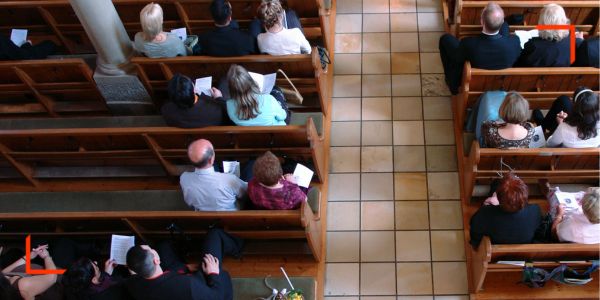Why Hearing Accessibility Matters
Why Hearing Accessibility Matters
Hearing aid users are often overlooked when temporary sound systems are installed at events – but under the Equality Act 2010, accessibility is not optional, it is a legal and moral responsibility. ISCVE Fellow Gordon Morris FInstSCVE, shares a personal and moving experience that highlights why accessibility must always be at the forefront for sound engineers, installers and venue managers alike.
FOR THOSE PEOPLE WHO WEAR HEARING AIDS – YOU DO NOT MATTER!!
By Gordon Morris FInstSCVE
Introduction
I attended a funeral service a few weeks ago for a person who had done sterling work over many years for the village in which I have lived all my life (73 years) and for 68 of those years I have been wearing hearing aids. I am an Audio Electrical Engineer and formed my company in 1982, running it until 2018 when I retired. For 36 years my speciality was to supply and install audio equipment for the public and hearing impaired. which complied with the Disability Discrimination Act 1995 and The Equality Act 2010.
The Issue
The funeral service was well attended, and by the time I got to the church the only vacant seat was at the back. Also at the back was a PA sound hire company, who put in a temporary sound system to provide for overspill attendance outside and to a remote room should it rain.
I asked the sound engineer if he had provided a loop system to assist the hearing aid users, his sharp answer was NO!!
I have heard this response before. This church already has its own sound system, complete with a hearing loop and loudspeakers, selected to take into account the reverberation, which can otherwise be detrimental to speech intelligibility.
It appeared to be much easier for the PA hire company to switch off the installed sound system and use only their own equipment. However, with just a little more thought, both systems could have been used to retain the use of the installed hearing loop.
The Problem
Because the hire company used their own system, there was no audio access for those who wear hearing aids. Unfortunately, I had to sit through the whole service not being able to hear or understand any of the speech – despite of, and indeed because of, the temporary PA system. Meeting with some of the congregation afterwards, who also wore hearing aids, I found that they too had experienced the same problem that I had endured.
Reasons
The temporary speakers provided in the church had a very powerful bass emphasis which meant that the higher the speech frequencies were being masked by the low frequency bass, causing the speech intelligibility to be very poor.
I spoke to the sound engineer afterwards and suggested providing a transmitter that could serve a number of neck loop receivers. His reply was that “it is expensive for a short service and only a small number of congregations would use it, so it does not matter. This is not my main core of business”.
Ethically, morally and legally he was wrong to discriminate and deny me the right and all the other hearing aid users, to hear the service.
Let’s face it, most funeral attendance will have a high proportion of elderly people with varying degrees of hearing loss wearing hearing aids.
The Moral of This Story
I have known the couple for many years; needless to say, this was upsetting and made me very angry, especially when it became clear that I was a member of a group that did not matter.
The moral of this story is that ‘only those who wear shoes know where it pinches’. There are over 10 million hearing aid users in the UK. We need to take on board that wherever there is a gathering of people who need to hear from a Public Address or sound reinforcement system there will be people who are supplementing their damaged hearing with a hearing aid. DO NOT DENY THEM THE RIGHT OR OPPORTUNITY TO HEAR.
WE DO MATTER!!
ISCVE Members: Make sure your installations are inclusive and compliant with the Equality Act 2010. Download our Assistive Listening Guide and Code of Practice for expert advice, standards and best practice guidance.










